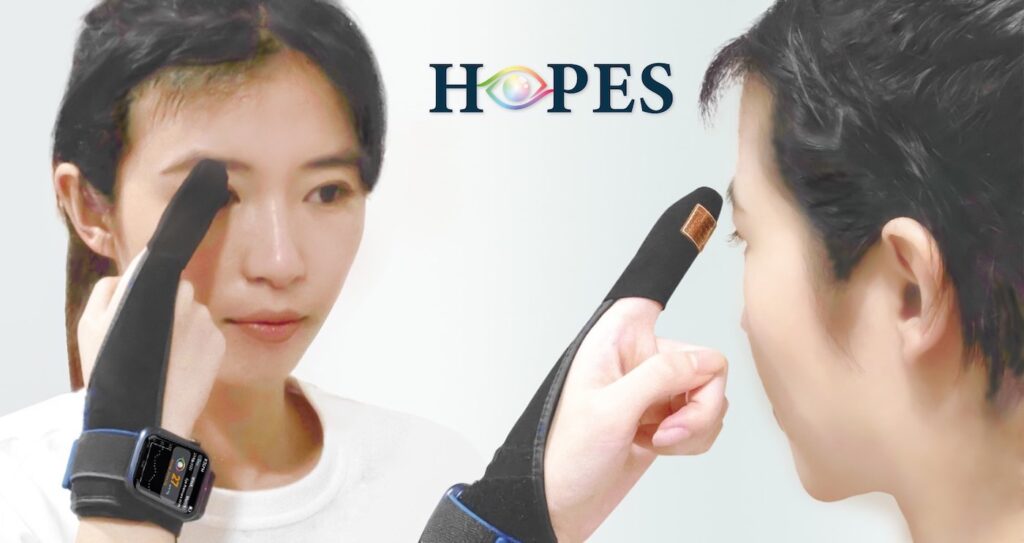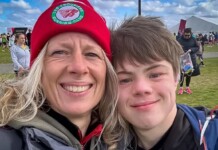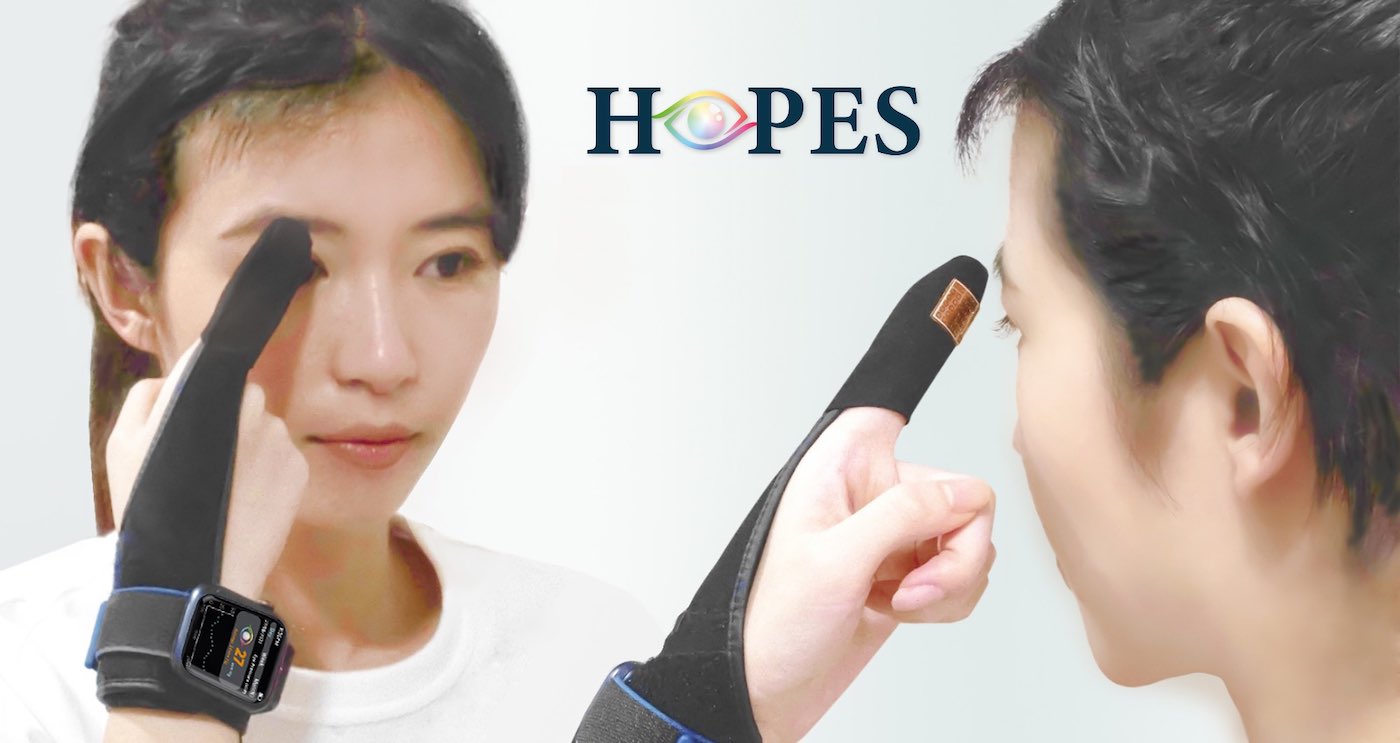The 2021 winners of the International James Dyson Award were announced, presented to young engineers whose devices might make the world a brighter place—like his breakthrough vacuum cleaners have.
Inspired by her father’s diagnosis of glaucoma and the multiple uncomfortable hospital visits, this year’s top winner, Kelu Yu, realized there is a global need for a less invasive, accessible home eye care device.
About 80 million people have glaucoma worldwide, and there is no cure but, if diagnosed and treated early, blindness can be prevented.
Kelu, along with Si Li and David Lee, spent 18 months designing a home testing device known as an Intraocular Pressure monitor (IOP) to be a critical, yet convenient, pain-free tool for eye care.
Called HOPES, the self-monitoring device and its app are a safe low-cost solution for any doctor to monitor the disease without requiring patient trips to their office.
HOPES, (which stands for Home eye Pressure E-skin Sensor) is a wearable biomedical device powered by patent-pending sensor technology and artificial intelligence.

After creating a profile in the App, the user wears the HOPES glove with the sensor placed at the fingertip, and pressed against the center of the eyelid. The unique sensor captures dynamic pressure information of the user’s eye with sub-millisecond precision. The captured signals are processed by machine learning algorithms and then transmitted to the Cloud via Bluetooth to be accessed remotely by clinicians.
LOOK: Tiny Wind Turbine That Generates Power From Your Apartment Balcony Wins Dyson Award
“I’ve experienced first-hand how invasive and unpleasant the tests for glaucoma can be, but it is a vital test,” said Sir James Dyson, the Founder and Chief Engineer at Dyson who started the awards.
Commercializing an idea, especially a medical device, is very difficult, he added. “I hope that the awareness this Award drives, as well as the financial support it provides, will give these ideas a springboard to success.”
The inventors, from National University of Singapore, were awarded $40,000 with the Prize, and plan to collaborate with clinicians at the National University Hospital to collect and analyze patients’ eye pressure data to train the device’s machine learning mode.
MORE: A Low Cost Inflatable Incubator for Babies Wins Dyson Award
“We want to improve people’s quality of life and aspire to one day apply our research group’s sensor technology across different health monitoring applications, such as robotics and biomedical devices.”
LET Others See The News– Share on Social Media…




















